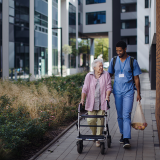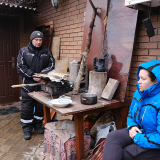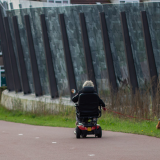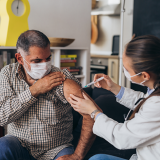
Condițiile de viață și calitatea vieții
„Condițiile de viață și calitatea vieții” reprezintă una dintre cele șase activități principale ale programului de lucru al Eurofound pentru perioada 2021-2024. Eurofound va continua să cartografieze și să analizeze principalele aspecte legate de îmbunătățirea condițiilor de viață ale cetățenilor europeni, luând în calcul și informațiile privind percepția acestora asupra calității vieții și a societății. Deoarece pandemia de COVID-19 și criza economică provocată de aceasta au afectat profund viețile oamenilor, Eurofound va analiza mai în detaliu impactul acestei crize asupra cetățenilor Uniunii în diferite etape ale vieții.
În perioada 2021-2024, cercetările Eurofound vor oferi informații importante despre provocările și perspectivele legate de condițiile de viață și de calitatea vieții în UE, precum și despre rolul jucat de diferitele inițiative menite să atenueze greutățile de natură socială cu care se confruntă diversele categorii de cetățeni. Prezintă un interes deosebit implicațiile pentru vârstnici și nevoile lor de îngrijire, implicațiile pentru tineri și incluziunea și mobilitatea lor socială, precum și diversele consecințe ale crizei asupra bărbaților și femeilor .
Serviciile publice din întreaga UE au avut un rol important în gestionarea crizei provocate de pandemia de COVID-19, deși s-au confruntat cu provocări semnificative. Ele vor fi evaluate mai în detaliu, cu accent pe aspecte precum calitatea, accesul și accesibilitatea acestora. După cum au arătat constatările anterioare, această criză a avut efecte disproporționate asupra anumitor categorii de persoane, în funcție de vârstă, de responsabilitățile de îngrijire și de echilibrul între viața profesională și cea privată , iar Eurofound va analiza aceste aspecte mai amănunțit.
Acționând în mod coordonat cu Institutul European pentru Egalitatea de Șanse între Femei și Bărbați (EIGE), Eurofound intenționează să cerceteze problema disparităților de gen multidimensionale prin investigarea impactului crizei provocate de pandemia de COVID-19 asupra bărbaților și a femeilor, din perspectiva participării la ocuparea forței de muncă, a condițiilor de viață materiale și a bunăstării, cu scopul de a identifica diferențele și a evalua efectul crizei asupra disparităților de gen.
- Infografic: Condițiile de viață și calitatea vieții în UE
„ Calitatea serviciilor publice a fost și este esențială pentru clădirea încrederii în instituțiile din Europa contemporană și va rămâne crucială pentru depășirea provocărilor actuale și viitoare. Asigurarea unor servicii de calitate este și un domeniu deschis inovației, în special în ceea ce privește trecerea la servicii digitale mai ecologice, precum și pregătirea pentru riscuri viitoare, similare pandemiei.”
Tadas Leončikas, director de cercetare principal, unitatea Politici Sociale






























